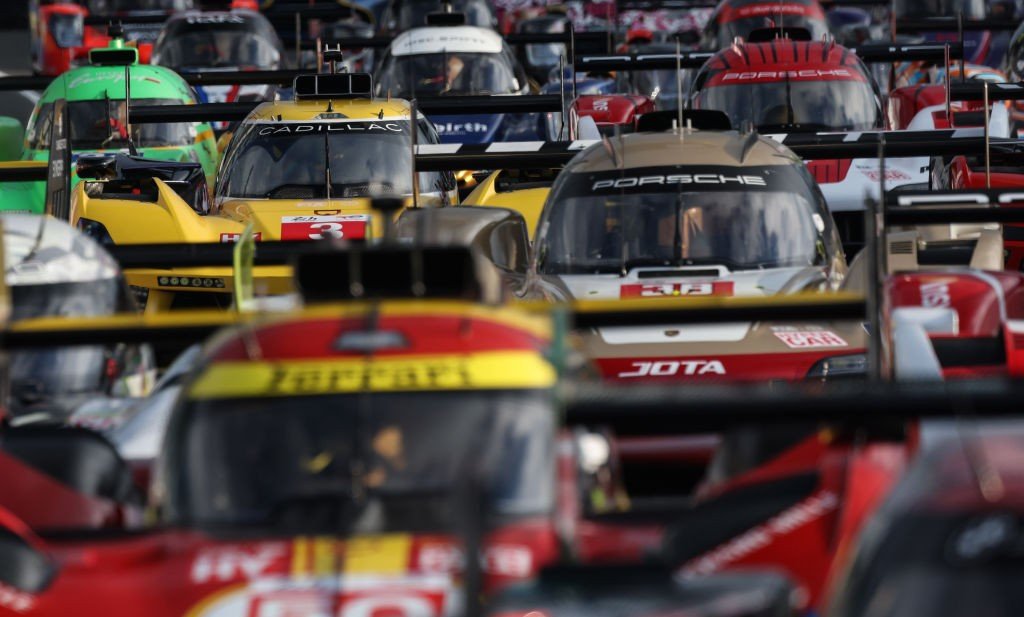Future of Endurance Racing: Manufacturers Seek Stability Amid Technological Transition
The FIA World Endurance Championship (WEC) and the IMSA WeatherTech SportsCar Championship have seen a surge in manufacturer participation and thrilling competition in recent years, largely due to the converged Hypercar regulations. This momentum, however, poses the urgent question of how to sustain it through upcoming challenges in the automotive industry.
Manufacturers, including Porsche, advocate for a unified set of rules and collaboration on a platform for the FIA and ACO to follow. The current Hypercar regulations are confirmed through the end of the 2029 season, following a two-year extension announced at Le Mans last year, prompting brands like Genesis and Ford to commit to entries by 2026 and 2027, respectively.
Behind the scenes, work is underway on a ruleset designed for hydrogen-powered prototypes to debut at Le Mans and in the WEC by 2028. This timeline is under review, with indications that hydrogen rules could shift to 2030 due to complexities in design specifications, particularly the preference for liquid hydrogen over gaseous forms.
The planned extension of the Hypercar regulations to 2032 raises important questions. It allows additional manufacturers to join the fray, bringing the total to potentially over ten, which complicates balancing performance across different technologies. Porsche’s Vice President of Motorsport Thomas Laudenbach emphasizes the need for a coherent technical framework to enhance competitive equity and budget control.
In a recent statement, Laudenbach addressed whether the shift to non-hybrid cars operating on eFuels would be viable. "I don’t think it’s very likely," he stated, noting that, while he acknowledges the benefits of eFuels, integrating them into the existing frameworks adds complexity without guaranteed benefits.
Laudenbach called for a streamlined set of regulations encompassing both LMH and LMDh vehicles. "We need to eliminate discussions surrounding these two sets of rules and focus on a collaborative solution," he asserted, highlighting that the evolving technology landscape necessitates continuous adaptation without overcomplicating the competitive framework.
He cautioned about the increasing operational expenses in motorsport, which must align with the corporate priorities of automakers. "It’s becoming increasingly difficult to allocate budgets for motorsport," he warned.
As the current rules are projected to last, industry leaders must initiate discussions now to safeguard the future of endurance racing. "We have to start the discussion because it’s going to take time," Laudenbach remarked. "If we simply enjoy the current circumstances without proactive planning, we risk destabilizing what we’ve built."
The enduring success of endurance racing depends on the collective ability of manufacturers and governing bodies to innovate responsibly while remaining in tune with evolving technology and market demands. The path forward remains crucial not only for competitive balance but also for the relevance of motorsport in driving automotive innovation.


